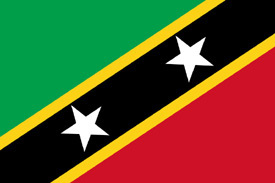
Study Shows A Major Decline In Poverty On Nevis
Charlestown, Nevis
April 07, 2009
A study to determine the level of poverty on Nevis has revealed a 50 percent reduction and destitution eradicated for the period 2007/2008. The preliminary findings came from a Country Poverty Assessment commissioned by the Caribbean Development Bank (CDB) and conducted by Trinidad based Kairi Consultants Limited.
Minister with responsibility for Social Development Hon. Hensley Daniel made the disclosure recently in an interview with the Department of Information. He said the preliminary data was no surprise since the sitting Nevis Island Administration (NIA) had developed social programmes to reduce the 30 percent poverty level, which existed according to a previous study for the period 1999/2001 which was conducted by the same consultants and commissioned by the CDB.
The study involved the assessment of conditions which affected the welfare of people; identified policies, strategies, action programmes and projects that would reduce the extent and severity of poverty, enhance social development and improve the overall quality of life was conducted in St. Kitts and Nevis.
According to Mr. Daniel, the study also revealed a significant decline of poverty among women from 62 percent to 51 percent and that spoke to the programmes which ensured women participated and accessed the resources of the country.
Ninety-three percent of the island’s children attended school regularly and the Minister noted that statistic was an important marker of development since it indicated a high level of truancy. He said in the context of development when compared to other Latin American countries, it would be considered perfect.
Mr. Daniel said it was also an indicator that the programmes in education like the School Feeding Programme, the provision of books, training of students at colleges and universities paid for by the government were accessible to the less fortunate in the society.
“What it suggests is that this programme is reaching those who are most”¦This is importantt because in many, many countries”¦a lot of money is spent but the peeople who need it most don’t get it.
“What this is saying is that the investments we have made in education at the preschool, primary, secondary and tertiary levels ““ the poor in the society have been able to benefit from education and that is significant upward mobility,†he said.
The study also showed that 90 percent of the people of Nevis lived in individual private homes and that more that 50 percent of the homes on the island were owned by people free of any mortgages on them.
Eighty-eight point nine percent of the people had electricity; 92 percent had pipe borne water (79 percent directly into their homes and 13 percent unto their premises) while 97.3 percent of the population used cooking gas and 60 percent of the homes had internet access.
In the area of health, Mr. Daniel who is also responsible for Health on Nevis said the results indicated that 90 percent of the people were more likely to visit a private doctor which compared favourably with other regional and international countries.